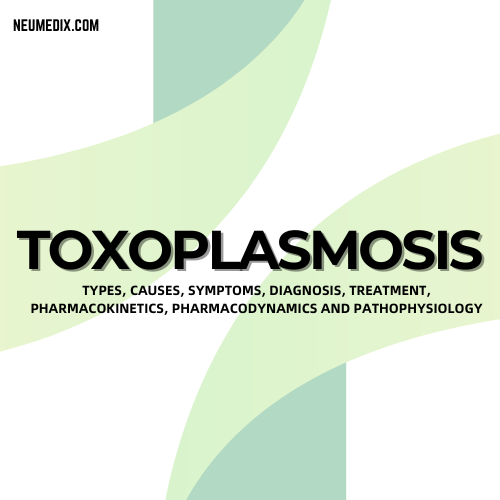Toxoplasmosis is an infectious disease caused by the parasite Toxoplasma gondii. While many people may be infected with Toxoplasma gondii at some point in their lives, most individuals do not experience any symptoms. However, toxoplasmosis can cause serious health complications, particularly in individuals with weakened immune systems and pregnant women.
2. Types of Toxoplasmosis:
- Congenital Toxoplasmosis: This occurs when a pregnant woman passes the Toxoplasma gondii parasite to her unborn child during pregnancy.
- Acquired Toxoplasmosis: Acquired toxoplasmosis occurs when individuals become infected with the Toxoplasma gondii parasite through ingestion of contaminated food or water, or through exposure to infected cat feces.
3. Symptoms of Toxoplasmosis:
- In most cases, toxoplasmosis does not cause any symptoms.
- When symptoms do occur, they may include:
- Fever
- Muscle aches
- Fatigue
- Headache
- Sore throat
- Swollen lymph nodes
- In severe cases, toxoplasmosis can cause damage to the brain, eyes, or other organs.
4. Causes and Risk Factors:
- Consumption of Contaminated Food or Water: Toxoplasma gondii parasites can be found in raw or undercooked meat, unwashed fruits and vegetables, and contaminated water.
- Exposure to Cat Feces: Cats are the primary host of Toxoplasma gondii, and the parasite is shed in their feces. Individuals can become infected by accidentally ingesting the parasite through contact with cat litter or soil contaminated with cat feces.
- Weakened Immune System: Individuals with weakened immune systems, such as those with HIV/AIDS or undergoing chemotherapy, are at increased risk of developing severe toxoplasmosis.
5. Diagnosis of Toxoplasmosis:
- Blood Tests: Blood tests can detect antibodies to Toxoplasma gondii, indicating a past or current infection.
- Amniocentesis: In pregnant women, amniocentesis may be performed to test for the presence of Toxoplasma gondii in the amniotic fluid.
- Biopsy: In severe cases of toxoplasmosis, a tissue biopsy may be performed to confirm the presence of Toxoplasma gondii parasites.
6. Pharmacokinetics (PK) and Pharmacodynamics (PD) of Toxoplasmosis Treatment:
- Antibiotics: Antibiotic medications, such as sulfadiazine and pyrimethamine, are commonly used to treat toxoplasmosis. These medications work by inhibiting the growth and replication of the Toxoplasma gondii parasite.
- Antimalarial Drugs: Antimalarial medications, such as atovaquone or clindamycin, may also be used to treat severe cases of toxoplasmosis.
- Corticosteroids: Corticosteroid medications may be prescribed to reduce inflammation and swelling associated with severe toxoplasmosis.
7. Pathophysiology of Toxoplasmosis:
- Toxoplasma gondii parasites enter the body through ingestion of contaminated food or water, or through exposure to infected cat feces.
- Once inside the body, the parasites multiply rapidly and can spread to various organs and tissues, including the brain, eyes, and muscles.
- In individuals with weakened immune systems, such as those with HIV/AIDS or undergoing chemotherapy, Toxoplasma gondii parasites can cause severe and potentially life-threatening complications, such as encephalitis or pneumonia.
8. Conclusion: Toxoplasmosis is an infectious disease caused by the parasite Toxoplasma gondii. While most individuals with toxoplasmosis do not experience any symptoms, severe cases can cause serious health complications, particularly in individuals with weakened immune systems and pregnant women. Prompt diagnosis and treatment are essential to prevent complications and promote recovery. If you suspect you may have toxoplasmosis, consult a healthcare provider for proper evaluation and management.




